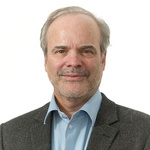David Petraeus will face challenges at helm of CIA
National Security shakeup will allow new joint military-intelligence operations.
For a former liberal Democrat who opposed the Iraq surge, Leon Panetta didn't do too badly as director of the CIA. He led some of the most aggressive counterterrorism operations in the history of the spy agency, including an unprecedented escalation of drone strikes in Pakistan and elsewhere. Under Panetta's watch a number of top al-Qaida terrorists have been taken off the battlefield.
But Gen. David Petraeus, as Panetta's would-be successor, is expected to take CIA -- military relations to a whole new level of operational "jointness" and, the hope is, effectiveness -- at a time when covert action has become increasingly important. Much is being made of Petraeus's imminent departure as commander of U.S. and NATO forces in Afghanistan. But the CIA already has what is believed to be the agency's largest-ever presence in one country there, and Petraeus won't be going far in spirit, even as he travels from Afghanistan to Langley, Va. "He obviously understands what the CIA's role is," said a senior administration official, who described Petraeus's acceptance of the job as the product of a "multi-month careful process."
"In a sense he's staying on the battlefield, just changing uniforms," Gen. David Barno, a former commander in Afghanistan, told National Journal on Wednesday.
Like many top commanders, Petraeus believes that intelligence drives military operations, and he will no doubt ratchet up the CIA's already substantial role in support of U.S. forces in Afghanistan and Iraq. "He really understands intelligence methods," says Maj. Paula Broadwell, who is doing a dissertation at Harvard on Petraeus's career. "He has been a huge advocate of partnering with the National Security Agency, to bring in some game changers on the battlefield … so battalion and company commanders can get the information they need."
Beyond that, Petraeus, a master of systems management, is about to step into a dysfunctional bureaucratic hall of mirrors that may include congressional hearings. Nearly a decade after 9/11 and six years into a dramatic and controversial reform that was supposed to forge previously stove-piped intel agencies into a single unit, considerable infighting remains. The Intelligence Reform and Terrorist Prevention Act of 2004, an intensely politicized response to 9/11, removed the head of the CIA, at least nominally, as the director of the nation's intelligence apparatus and gave that job to the new office of Director of National Intelligence.
But today the DNI is often seen as an ineffective and needless layer of bureaucracy with little budget authority, and the CIA and National Security Agency have banded together to exercise influence behind the scenes. The two dominant agencies often share "restricted handling" agendas with each other that they once pursued separately, but they just as often cut other intel agencies out. And in the end, the new reform did little to address the central problem leading up to 9/11: the failure of the CIA and FBI to adequately communicate and share intelligence and leads.
Behind the scenes, Petraeus will be vying for influence with Director of National Intelligence James Clapper, another former general. Clapper gets to brief the president every day, but it is the CIA that still writes about 85 percent of the daily brief that Clapper delivers. Panetta stepped into this fray himself, prevailing over the DNI to retain authority to appoint CIA station chiefs overseas.
Petraeus will meet with some resistance. Uniforms of any stripe tend to make the tea-sipping intellectuals who usually run the intelligence community a little nervous-even though Panetta's predecessor, the highly regarded Michael Hayden, was also a general (Air Force). Petraeus, to smooth things over, plans to retire from the military before he takes the job, unlike Hayden, according to another senior administration official. Still, the hope is that if anyone can fix it, Petraeus can. "He's been dealing with dysfunctional organizations for a while," says Broadwell. "I don't know if you ever worked in a NATO environment. He has."







